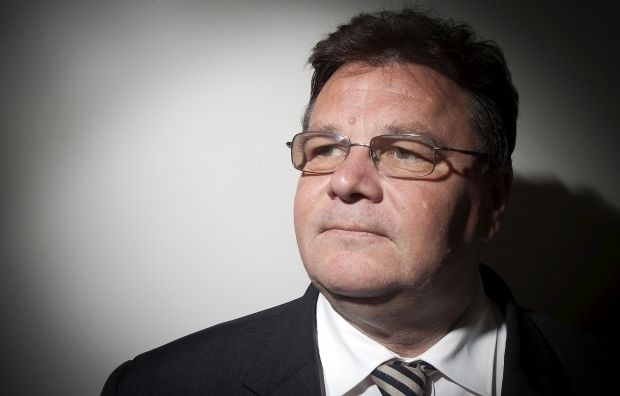
In an interview on April 20 with Current Time TV, Linkevicius also said Vilnius desires "normal" relations with Russia but that they should be based on "principles and values."
Linkevicius spoke to the Russian-language network, run by RFE/RL in cooperation with VOA, as the 28-member alliance is bolstering its presence in the region to reassure member nations in the face of a renewed aggressive foreign policy by neighboring Russia.
Particularly worrisome is Moscow's illegal annexation of Ukraine's Crimea region and its continued support for separatists in eastern Ukraine.
Russia has also been accused of interfering in the affairs of countries looking to move closer to the NATO alliance.
Read alsoOver 1,200 troops participating in NATO drills in Latvia's Summer ShieldNATO has deployed four battalions to Poland and the Baltic states of Lithuania, Latvia, and Estonia, led by U.S., German, Canadian, and British troops and each with about 800 troops.
Linkevicius told Current Time TV that the level of threat from Russia against the Baltic states – all NATO members and all former Soviet republics – remains high.
"The situation has not really improved since [last year]," he said.
Linkevicius denied the NATO deployments should be seen by Moscow as a threat, given their small size compared with the level of Russia's forces in the region.
"If we compare figures, there are 300,000 servicemen in the Western Military District of the Russian Federation, plus the three more divisions whose deployment has been announced just recently," he said.
Read alsoTurchynov: Russia's further invasion will take 2-3 hours if it chooses to advanceBut Linkevicius said the NATO presence should be seen as a sign of its commitment to the region's security.
"The main thing is that we are not talking here about competition or escalation," he said.
"What we are doing is meant to leave no doubts for anyone that the NATO alliance will do everything necessary to guarantee the security of its territories and population," the foreign minister said.
Linkevicius said there was a "war" of sorts already taking place in the region – the so-called "hybrid" war of unconventional methods, including disinformation and fake news.
"This war already is taking place – a cyberwar, an information war. In general, the understanding of security has been expanded," he said.
"Once, there were times when before a real fight, an artillery barrage took place.... This is no longer needed. It may be sufficient to use brainwashing to create the staging ground for [military] action.
"I am deeply convinced that this is what happened in Crimea," Linkevicius said.
"A ban or some type of censorship are not solutions. It is necessary to set up alternative sources [of information] and to fight those tendencies directly, in a positive way," he said.
On relations with Russia, Linkevicius said there have been few contacts in recent times between Vilnius and Moscow.
"It has been a while since we have had any high-level meetings," he said. "We do not think this is because of our position.
"In the future, we do want to have relations like normal neighbors. But [relations] should be based on some principles and values, and this is very important."
Linkevicius noted that next month a Russian forum will be held in Lithuania where scholars, journalists, and political science experts will be invited.
"Politicians will be there, too," he said. "We will talk about the future of Russia and of Russia in Europe and about freedom of speech.
"And, by the way, we will be speaking in Russian."

